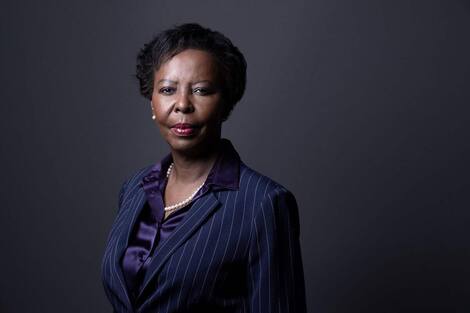Le Canada coupe 3 M$ en financement à l'OIF après un sondage interne dévastateur
Le Canada va couper 3 millions de dollars en financement à l'Organisation internationale de la Francophonie (OIF) après un sondage interne dévastateur sur le climat de travail et une série de décisions controversées de la secrétaire générale Louise Mushikiwabo.
Dans une lettre datée du 2 avril obtenue par l'Agence QMI, la ministre des Affaires étrangères Mélanie Joly déplore des faits «troublants» et met en cause un «recul» dans les méthodes de gestion de l'organisation.
«Nous le répétons sur toutes les tribunes, le Canada a une tolérance zéro envers le harcèlement sexuel. Notre engagement au sein des grandes familles multilatérales dont nous faisons partie est également indissociable des valeurs de transparence, de saine gestion et de redevabilité», explique la ministre Joly à Mme Mushikiwabo.
- Écoutez la rencontre Dutrizac – Dumont diffusée chaque jour en direct 7 h via QUB radio :
Une consultation interne auprès de 209 des quelque 300 employés de l'OIF fait état d'un piètre climat de travail : 44 % des répondants pensent avoir été victimes de harcèlement moral au travail et 9 % de harcèlement sexuel.
Le document, obtenu par l'Agence QMI, révèle que 46 % n'ont pas été en mesure d'en parler ou de le signaler, et 75 % de ceux qui en ont parlé pensent que «cela n'a pas abouti» en résultat concret.
Confrontée à ces données lors d'une réunion récente du Conseil permanent de la Francophonie, la secrétaire générale aurait balayé le sondage du revers de la main en évoquant les «biais» des répondants et en remettant en question la méthodologie du sondage, selon une source au gouvernement fédéral.
«La réponse a démontré à quel point ce n'était pas rassurant pour les prochaines étapes et pour le système», a déclaré cette source.
Plus de pouvoirs au sommet
À la gestion des cas de harcèlement s'ajoute aussi une série de décisions de Louise Mushikiwabo sur la restructuration de l'organigramme de l'OIF.
La secrétaire générale s'est arrogé certains pouvoirs au détriment d'autres cadres de l'OIF, incluant la Québécoise Caroline St-Hilaire, récemment nommée au poste numéro 2 de l'OIF, celui d'administratrice.
Entre autres choses, Louise Mushikiwabo a profité de la période de flottement de deux semaines avant l'entrée en fonction de Caroline St-Hilaire pour lui retirer le choix des représentations à l'international, en plus d'avoir procédé à de nombreuses nominations discrétionnaires.
Ces changements – «faits sans préavis, sans consultation et en l'absence d'administrateur», déplore Mélanie Joly dans sa lettre – ont contribué à la décision de la ministre de couper temporairement le financement pour au moins une année.
L'argent sera plutôt reversé à d'autres «opérateurs et institutions afin d'appuyer leurs mandats respectifs, en appui aux populations francophones».
«Nous espérons voir des changements tangibles sur ces questions dans les prochaines semaines et les prochains mois», souligne la ministre.
Les 3 millions $ représentent l'entièreté de la contribution volontaire du Canada à l'OIF. La contribution totale du pays à l'OIF s'élève à plus 15 millions d'euros par année.
2023 : Un sondage interne décrit un climat toxique à l'OIF.
2021 : Notre bureau d'Enquête révèle que la secrétaire Louise Mushikiwabo a dépensé 120 000 $ pour s'installer dans un nouvel appartement, dont le loyer est de 18 000 $ par mois.
2018 : L'OIF met en place de nouvelles règles de transparence financière.
2016 : Le Journal révèle que Michaëlle Jean a dépensé un demi-million $ pour l'aménagement de son appartement de fonction et la hausse de ses frais de déplacement.
2016 : Mme Jean dépense 50 000$ US pour un séjour de quatre jours au prestigieux hôtel Waldorf Astoria de New York.



